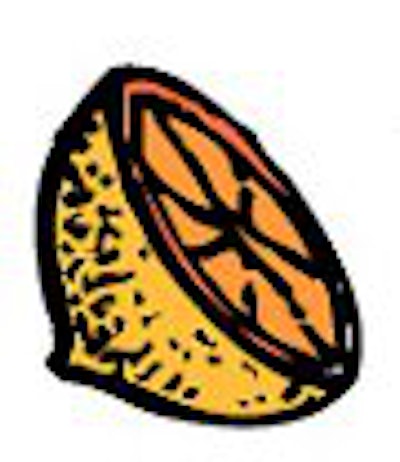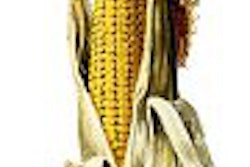
Mother always warned you that eating candy before dinner would spoil your appetite. She may not have known that eating candy during radioiodine therapy for thyroid cancer can be just as bad. In a preliminary study, Japanese researchers have found that sucking on lemon candy too close to radiotherapy may actually worsen damage to the salivary glands.
Ordinary lemon drops are commonly used as a salivation-inducing snack during high-dose radioiodone 131I therapy, but how well it works has yet to be established, according to Dr. Kunihiro Nakada, Ph.D., and colleagues from the Hokkaido University Graduate School of Medicine in Sapporo and the Noguchi Thyroid Clinic and Hospital Foundation in Beppu.
Salivary dysfunction is the most common side effect associated with 131I therapy for differentiated thyroid cancer. "The assumption is that lemon candy accelerates clearance of radioiodine from the salivary glands," the authors wrote in the Journal of Nuclear Medicine (February 2005, Vol. 46:2, pp. 261-266).
The group tested that assumption in 230 patients who were divided into two groups. Group A was instructed to suck on one or two lemon candies, every two to three daytime hours, during the first five days of 131I therapy. Group B was told to do the same, but waited 24 hours after the ingestion of 131I. Ingredients in the candy included sugar, cornstarch, ascorbic acid, and concentrated lemon juice. The 131I dosage ranged from 2.66-5.55 GBq in both groups.
The patients were followed up for as long as two years after treatment. The salivary glands were assessed with 99mTcO4-scintigraphy. The authors looked for the onset of sialadenitis, taste dysfunction, dry mouth, and xerostomia.
The results showed that 43 patients in group A experienced sialadenitis, while 20 patients had taste dysfunction. Twenty-four patients in this group had both side effects. In group B, there were 34 cases of sialadenitis, 20 cases of taste dysfunction, and a dozen instances of both.
Overall, the patients in group B fared better than group A with a 36.8% incidence of sialadenitis, a 25.6% incidence of taste dysfunction, and an 11.2% incidence of dry mouth. The incidence rate in group A was 63.8% for sialadenitis, 39% for taste dysfunction, and 23.8% for dry mouth.
Nakada's group suggested that the timing of the lemon candy administration was the reason that group A did worse, as the 131I preparation and administration were the same in both groups.
"Lemon candy increases not only salivary flow but also salivary gland blood flow.... If continuous sucking of lemon candy constantly enhances blood flow to the salivary gland, a greater amount of 131I may be delivered to the salivary glands," they explained. However, after 24 hours, a 131I uptake plateau was reached and the majority of the radioactive agent was excreted into the urine, they added.
The limitations of this study included the lack of a control group and the subjective experience of patients. For example, some people who complained of dry mouth had normal scintigraphic results or vice versa.
Still, the authors recommended that lemon candy be enjoyed after a full day of treatment. While the subjects in this study did not receive any drugs along with the lemon candy, "it seems reasonable that ... drugs such as reserpine, atropine, or amifostine (be administered) since 131I uptake in the salivary glands can be suppressed by these drugs," they stated.
By Shalmali Pal
AuntMinnie.com staff writer
March 3, 2005
Lemon illustration courtesy of www.classroomclipart.com.
Related Reading
Aw shucks! Corn-oil-based scintigraphy makes good in gallbladder disorder, January 20, 2005
Ice cream pretreatment improves myocardial sestamibi imaging, October 18, 2002
Blueberry juice enhances pediatric MR urography, April 26, 2001
Copyright © 2005 AuntMinnie.com



















